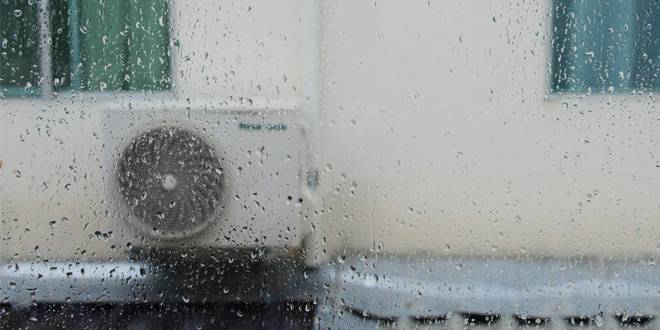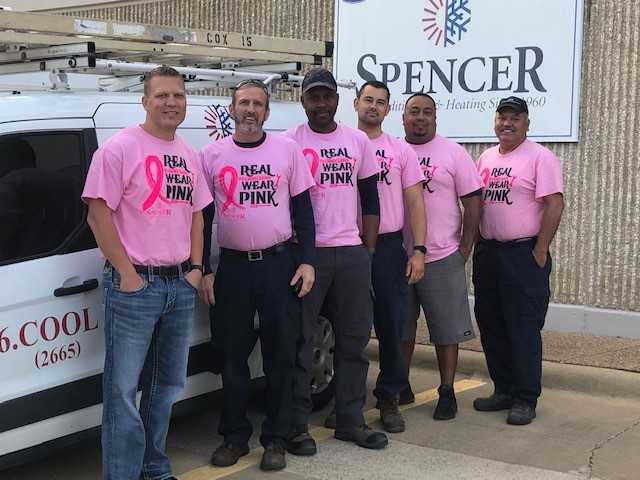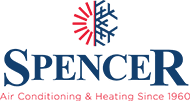
Treat yourself to the clean air oasis you deserve! In Irving, TX, where air quality matters, residential and commercial filtration systems are essential. Discover the ultimate guide to filtration systems, from understanding their importance to choosing the right one for your space. Breathe easier and healthier with our comprehensive guide!
Understanding the Importance of Clean Air:
Clean air is essential for maintaining good health and well-being in residential and commercial buildings. Indoor air quality can have a significant impact on our health, as we spend a significant amount of time indoors. In fact, indoor air can be up to five times more polluted than outdoor air, according to the Environmental Protection Agency (EPA). This is due to a variety of factors, including inadequate ventilation, the use of certain household products, and the presence of pollutants such as dust, pollen, pet dander, and mold spores.
Poor indoor air quality can lead to a range of health issues, including respiratory problems, allergies, and asthma. Children, the elderly, and individuals with pre-existing respiratory conditions are particularly vulnerable to the effects of poor indoor air quality. By investing in residential and commercial filtration systems, you can help remove pollutants from the air, ensuring cleaner and healthier indoor air for you, your family, and your employees.
Filtration systems work by trapping particles as air passes through them, capturing pollutants and preventing them from circulating in your indoor environment. By removing these pollutants, filtration systems can help reduce the risk of respiratory issues and allergies, allowing you to breathe easier and enjoy a healthier indoor environment.
In summary, clean air is essential for our health and well-being, especially in indoor environments where we spend so much of our time. Residential and commercial filtration systems play a crucial role in removing pollutants from the air, ensuring cleaner and healthier indoor air for everyone.

Types of Filtration Systems:
Mechanical Filters:
Mechanical filters, also known as media filters, are the most common type of filtration system found in residential and commercial HVAC systems. These filters work by capturing particles as air passes through them. They are effective at removing larger particles such as dust, pollen, and pet dander. Mechanical filters are available in various types, including flat-panel fiberglass filters, pleated filters, and high-efficiency particulate air (HEPA) filters. HEPA filters are especially effective at capturing very small particles, making them ideal for individuals with allergies or respiratory conditions.
Electronic Air Cleaners:
Electronic air cleaners, also known as electrostatic precipitators, use an electric charge to trap particles as air passes through them. These cleaners are highly efficient at capturing smaller particles, such as smoke, bacteria, and viruses. Electronic air cleaners are often used in conjunction with mechanical filters to provide comprehensive air cleaning. They require regular maintenance to ensure optimal performance, including cleaning the collector plates and replacing any ionizer wires.
UV Germicidal Lamps:
UV germicidal lamps use ultraviolet (UV) light to kill bacteria, viruses, and other microorganisms in the air. These lamps are ideal for reducing the spread of airborne illnesses and can be especially beneficial in commercial settings such as hospitals, schools, and offices. UV germicidal lamps are typically installed in the HVAC system and work by exposing the air to UV light as it passes through the system. UV lamps require regular maintenance to ensure they are functioning correctly and effectively killing microorganisms in the air.
Each type of filtration system has its own advantages and is suitable for different environments and air quality needs. By understanding the differences between these systems, you can choose the right filtration system for your residential or commercial space to ensure cleaner and healthier indoor air.
Commercial Filtration Solutions:
HVAC Filters:
High-efficiency HVAC filters are essential for maintaining clean indoor air quality in commercial spaces. These filters are designed to capture a wide range of particles, including dust, pollen, mold spores, and pet dander. By removing these pollutants from the air, high-efficiency HVAC filters help improve indoor air quality and create a healthier environment for employees and customers. It’s important to choose the right type of filter for your commercial space based on factors such as the size of the space, the level of air pollution, and the specific air quality needs.
Air Purifiers:
Commercial air purifiers are another effective solution for improving indoor air quality in commercial spaces. These purifiers are designed to remove a variety of pollutants from the air, including dust, allergens, bacteria, and odors. Commercial air purifiers come in a variety of types, including portable units that can be placed in specific areas of the building and whole-building systems that are integrated into the HVAC system. By removing pollutants from the air, commercial air purifiers help create a cleaner and more pleasant environment for employees and customers, leading to improved health and productivity.
Residential Filtration Solutions:
Whole-House Filtration Systems:
Whole-house filtration systems are integrated into the HVAC system and work to filter all the air in your home. These systems provide comprehensive air cleaning, ensuring that every room in your home receives clean and purified air. Whole-house filtration systems are highly effective at removing a wide range of pollutants, including dust, pollen, pet dander, and mold spores. They are ideal for homeowners looking to improve indoor air quality throughout their entire home.
How Whole-House Filtration Systems Work:
Whole-house filtration systems are typically installed near the air handler of the HVAC system.
As air is circulated through the HVAC system, it passes through the filtration system, where pollutants are captured and removed.
The clean air is then distributed throughout your home, providing you with fresh and purified air in every room.
Benefits of Whole-House Filtration Systems:
Provides comprehensive air cleaning for your entire home.
Removes a wide range of pollutants, including dust, pollen, and pet dander.
Improves indoor air quality, creating a healthier environment for you and your family.
Portable Air Purifiers:
Portable air purifiers are standalone units that are designed to clean the air in a single room. These purifiers are ideal for homeowners looking to improve air quality in specific areas of their home, such as bedrooms or living rooms. Portable air purifiers are easy to move around as needed, allowing you to target areas of your home where air quality may be a concern.
How Portable Air Purifiers Work:
Portable air purifiers use filters to capture and remove pollutants from the air.
Air is drawn into the purifier, where it passes through the filter and is cleaned.
The purified air is then released back into the room, providing you with clean and fresh air to breathe.
Benefits of Portable Air Purifiers:
Provides targeted air cleaning for specific areas of your home.
Easy to move around and use in different rooms.
Helps improve air quality in areas where pollutants may be more concentrated.
Benefits of Filtration Systems:
Improved Air Quality:
One of the primary benefits of filtration systems is their ability to improve indoor air quality. These systems work by capturing and removing pollutants, allergens, and irritants from the air, such as dust, pollen, pet dander, mold spores, and smoke. By removing these particles, filtration systems help provide cleaner and healthier indoor air for you and your family. This can lead to a range of health benefits, including reduced risk of respiratory issues and allergies.
Reduced Respiratory Issues:
By removing airborne particles from the air, filtration systems can help reduce respiratory issues such as asthma and allergies. Pollutants and allergens in the air can trigger respiratory symptoms and exacerbate existing conditions. Filtration systems help remove these triggers from the air, providing relief for individuals with respiratory issues and improving overall respiratory health.
Increased Energy Efficiency:
Filtration systems can also help improve the energy efficiency of your HVAC system. When your HVAC system has to work harder to heat or cool your home due to poor indoor air quality, it can lead to increased energy consumption and higher utility bills. By removing pollutants from the air, filtration systems reduce the workload on your HVAC system, leading to improved energy efficiency and potential energy savings.
Choosing the Right Filtration System:
Assess Your Needs:
When choosing a filtration system for your home or business, it’s important to assess your specific needs. Consider the size of your space, the level of air quality concerns, and your budget. Larger spaces may require more powerful filtration systems, while smaller spaces may be adequately served by simpler systems. If you have specific air quality concerns, such as allergies or asthma, you may need a filtration system that is designed to remove specific pollutants, such as dust, pollen, or pet dander. Your budget will also play a role in your decision, as more advanced filtration systems may come at a higher cost.
Consult with a Professional:
To ensure you select the right filtration system for your specific needs, it’s important to consult with a professional HVAC technician. A qualified technician can assess your space, evaluate your air quality concerns, and recommend a filtration system that meets your needs and budget. They can also ensure that the filtration system is properly installed and integrated into your existing HVAC system, ensuring optimal performance and efficiency.
By assessing your needs and consulting with a professional, you can select the right filtration system for your residential or commercial space, ensuring cleaner and healthier indoor air for you, your family, or your employees.
Maintenance Tips for Filtration Systems:
Regular Filter Replacement:
One of the most important maintenance tasks for filtration systems is regular filter replacement. Filters should be replaced according to the manufacturer’s recommendations, which is typically every 1-3 months. Over time, filters can become clogged with dirt, dust, and other particles, reducing their effectiveness and restricting airflow. By regularly replacing filters, you can ensure that your filtration system continues to operate efficiently and effectively, providing cleaner and healthier indoor air.
Professional Maintenance:
In addition to regular filter replacement, it’s important to schedule regular maintenance with a professional HVAC technician to keep your filtration system in top condition. A qualified technician can inspect your system, clean the components, and ensure that everything is functioning properly. They can also identify any issues early on and address them before they become larger problems. Professional maintenance can help prolong the life of your filtration system and ensure that it continues to provide clean and healthy indoor air for years to come.
By following these maintenance tips, you can ensure that your filtration system operates efficiently and effectively, providing cleaner and healthier indoor air for you and your family.
Transform your space into a Clean Air Oasis with Spencer Air Conditioning and Heating!
🌿 Contact us today for expert advice and professional HVAC services for residential and commercial filtration systems. Breathe easier and healthier with Spencer Air Conditioning and Heating! #CleanAirOasis #SpencerAirConditioningHeating 🍃🏢





